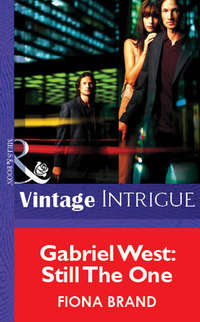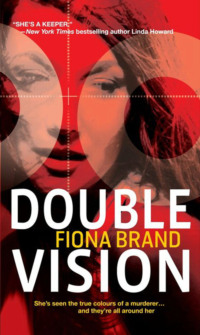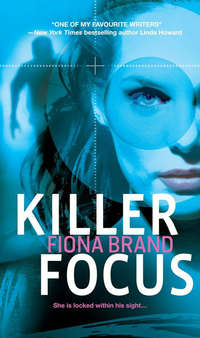
Полная версия
O'Halloran's Lady
The sound of distant sirens brought his head up, an automatic reaction that, after two years out of the force, he hadn’t been able to kick.
His jaw tightened. Thinking about Jenna was crazy. Since his wife, Natalie, and their baby had died in a house fire, Marc had had no interest in another committed relationship. He had enough guilt to process.
Added to that, he hadn’t seen Jenna in years and, apart from one unplanned episode after they had broken up and following a near accident with a car, they had never made it anywhere near a bedroom.
A vivid memory of Jenna scrambling off the couch they’d ended up sprawled across nine years ago, moonlight flowing over the pale curves of her body, jolted him out of the story altogether. A new tension coursing through him, he put the book down.
Broodingly, he recalled flickering images of her fastening the low back of her dress. The tense expression on her face as she’d searched for shoes and her handbag.
She had refused a lift and waved her cell at him, indicating she had already called a cab.
Marc hadn’t pushed it. The fact that they had slept together after they had broken up had underpinned the awkward minutes until the cab she’d ordered had slid into his drive.
The blinding fact that it had been Jenna’s first time had added to the tension, although Jenna had brushed it off. He could still remember her quiet assertion that if it hadn’t been for the adrenaline-charged moments when Marc had stepped in and saved her from being hit by an obviously drunk driver, what had just taken place on his couch would never have happened.
Marc had had to accept her self-contained approach. He’d been aware that she hadn’t liked the fact that he was a police detective or that he commanded an armed first response team, the Special Tactics Squad.
When he’d started dating Jenna’s cousin, Natalie had held a similar view. She hadn’t liked the long work hours, the seaminess or the danger, and she hadn’t liked being closed out of that part of his life.
After the first year of marriage, Natalie had wanted him to quit the force and go back to law, in which he had a degree. His parents, both lawyers, had their own successful law firm, and she hadn’t been able to understand why he didn’t want to be a part of it.
The argument had been the start of a wedge in their relationship he hadn’t been able to mend. When it came down to it he preferred the practical, hands-on approach to justice that police work offered him, rather than the intricacies of negotiating the legal system.
The whoosh of incoming mail on his computer brought his head up. Tension slammed into Marc as he noted the time: eleven o’clock, exactly. He had been so engrossed by the book, and the window into the past it had opened, that he had forgotten the time.
Jaw taut, he strolled to his desk and read the email.
The message was simple. The same message he had received every year for the past five years on the anniversary of the house fire. A fire he had been certain had been started deliberately, an act of revenge by the notorious criminal family he had been investigating at the time.
Catch me if you can.
Cold anger edged with frustration burned through Marc. Although, there was a certain relief in the fact that the waiting was over. Punching the print button, he waited for the hard copy of the taunting message to feed out.
He had never been able to trace the message to an actual person, or prove the message was connected to the crime. Each time he had traced the email to the server, the name and physical address hadn’t panned out. The trail had been predictable, a string of stolen identities, mostly deceased persons, through which cash payments via fake bank accounts had been made. Nonexistent people and random addresses, all added up to a wild-goose chase.
Despite his contention that the house fire that had killed his family and put him in hospital had been a copycat crime committed by someone other than the serial arsonist the police had been hunting at the time, no one had bought into his theory. Since the arsonist had died during a shootout just after he had tried to set a police station on fire, there was no one to question. The supposed perpetrator was dead, the fires had stopped, end of story.
Grimly, Marc filed the message with the others in a heavy manila folder that contained every police or fire department report and newspaper article relating to the fire and the death of his wife and small son.
Maybe he was being obsessive about his hunt for a shadowy criminal. Maybe he had been wrong all along, and the investigative team who had sifted through what was left of his house were right. The psychological reports that had finished his police career were adamant on that point.
Even so, Marc couldn’t let go. The two people he had cared about most had died of smoke inhalation when he should have been at home, protecting them. Instead, he had used his free time—the quality time he should have been spending with his family—working surveillance on a powerful criminal family who had slipped the net on his last operation.
Courtesy of the injuries he had sustained getting Natalie and tiny Jared out of the house, he had ended up flat on his back in hospital for weeks. Further months on sick leave while he had waited for his neck and shoulder to heal, followed by reconstructive surgery for his shoulder, had added to his frustration. By the time he had been fit for duty again, the case had been closed.
He was no longer a detective, but he had not dropped the case. Thanks to bequests from his grandparents and a talent for investment, Marc was independently wealthy. Enough so that he had been able to buy in to the security business he presently co-owned and could afford to fund an ongoing private investigation into the case.
When he had finally woken up from sedation in hospital to find that both Natalie and Jared had died, grief and cold fury hit him like a blow. Despite the gloomy prognosis on his fractured neck, he had made a vow.
It was too late to save his family, but he would use his talent for solving crime, which had resulted in their deaths, to bring the man he was certain had murdered them to justice.
He hadn’t made a significant breakthrough in the six years he had chased leads and walked down investigative dead alleys. But the murderer who was taunting him would make a mistake, and when he did Marc would be waiting.
It was just a matter of time.
Chapter 2
An hour before midnight, and the anniversary of Natalie’s death.
Jenna walked through the darkened parking lot of the shopping mall in central Auckland, glad for the casual warmth of jeans and boots and the cashmere coat belted around her waist to push back the chill.
Overhead, thick clouds hid any hint of moon or stars. On the ground, streamers of cold mist rose off damp concrete and wreathed ranks of wet, glistening cars, adding a dismal air to a chilly winter’s night.
Behind her, footsteps echoed, the tread uncannily mirroring her own so that at first she had thought the step was just an echo.
Adjusting her grip on the carrier bags, which thumped against her legs with every step, she walked a little faster, although speeding up was an effort. She was tired from a string of late nights and too many hours spent at her computer. From the scratchiness at the back of her throat and the sensitivity of her eyes, she suspected she was also coming down with a virus. The diagnosis was further confirmed by the chills that periodically swept her and the aches and pains that seemed to have sunk into her bones.
She strained to listen behind her and logged the moment the change in her pace put whoever was following her out of sync with her step.
Automatically, her too-fertile writer’s brain analysed the tread. There was no sharp tap of heels. The sound was more deliberate, solid, so it was likely the person wasn’t female. He was probably one of the young guys she had seen hanging at the entrance to the mall on her way out.
Now that she knew there was definitely someone behind her, the fact that he hadn’t either veered off, or walked briskly past, but had chosen to remain approximately the same distance behind and maintain her snail’s pace sent a chill shooting down her spine. The farther she walked away from the lights of the mall, the more sinister the trailing footsteps had become.
As she approached an SUV, in an effort to catch a glimpse of whoever was behind her, she slowed and glanced in the wing mirror.
Apart from wet cars and dark, thin air wreathed with mist, as far back as she could see, the parking lot appeared to be empty.
In that same instant, she registered that the footsteps had stopped. Somehow that was more frightening than if she had actually caught a glimpse of whoever had been following her.
Heart pounding, she swung around and skimmed the rows of cars. The background hum of city traffic, the distant blare of a car horn, seemed to increase the sense of isolation in the misty parking lot, the muffling, encapsulating silence.
Somewhere off to the left a car engine coughed to life. She let out a relieved breath. Mystery solved. Whoever had been behind her must have stopped to unlock their car just seconds before she had gotten up the courage to check on him.
Castigating herself for the paranoia that had leaped at her from nowhere, she adjusted her grip on the carrier bags, and continued on toward her car.
She had parked on the far side of the lot, next to the clothing department stores, because when she’d made the decision to do some late night shopping, she hadn’t originally counted on buying groceries. Her goal had simply been to get out of her house, away from her office and the memories that, at this time of year, always seemed to press in on her.
Normally a dedicated shopper, happy to price and compare until she found exactly what she wanted, she’d found the items she’d needed too quickly. Unwilling to leave the bright cheerfulness of the mall and the simple human comfort of being amongst people, even if no one bothered to speak to her unless she handed money over a counter, she’d strolled on into the supermarket.
Shopping this late was ridiculous; the task could have waited until morning. But tomorrow was the anniversary of her cousin Natalie’s death and she hadn’t wanted to do anything as frivolous as buy pretty clothes. Especially since her aunt and uncle, who still struggled with their grief, expected her over for dinner.
Behind her, she could hear the car her “stalker” had climbed into accelerating toward the exit, going too fast. She caught a glimpse of a glossy, black sedan, pumped up at the back, and the flare of taillights as he braked. It occurred to her that the car, an Audi, looked like the same model the villain had used in her latest book, which seemed appropriate.
Annoyance at the casual cruelty of the man, if he really had been trying to scare her, replaced the last wimpy remnants of fear. She didn’t normally wish bad things on people, but a sudden, vivid fantasy of the Audi being pulled over and the driver being issued with an offence notice was warming.
Feeling a whole lot more cheerful, she angled across the lot toward her car.
Ahead, a noisy group of young people exited the mall and stopped right next to the shiny new Porsche she had bought to celebrate the release of her book. She saw with relief that they were trailed by a uniformed mall security guard who was keeping an eye on them.
Simultaneously she registered that the obnoxious Audi, which had apparently missed the exit ramp, was now doing another circuit of the lot. Distracted by the kids milling around her car, she sped up. As she did so, she automatically hitched the carrier bags higher and in that instant one of the handles broke and the contents of the bag cascaded onto the pavement.
Staggering a little at the sudden release of weight on one side and muttering beneath her breath, Jenna set the bags down. Luckily the bag that had broken had been filled with packets and cans, not fruits and vegetables. One eye on the kids, who were still grouped around her Porsche, she started retrieving cans, some of which had skittered across the lane.
As she bent to pick up a packet of rice, the throaty sound of an engine caused her to jerk her head up. Twin headlights pinned her. Adrenaline shoved through her veins, momentarily freezing her in place. The black car, which she had momentarily forgotten, was roaring straight for her.
Dropping the rice and cans, she flung herself into a gap between two cars, hitting the wet concrete of the parking lot a split second before the car accelerated past, so close the vibration shimmered up through pavement and hot exhaust filled her nostrils.
Loose hair tangled around her face, Jenna pushed into a sitting position, logging grazed palms that burned, and a knee that seemed temporarily frozen and which would hurt like blazes in a minute or two. Thankfully, her handbag, which had been slung over one shoulder, was on the ground next to her, although the contents, including her car keys and phone, had spilled across the concrete.
“Are you all right?”
The calm male voice jerked her head up. For a split second, heart still pounding with an overload of adrenaline, she saw O’Halloran. The illusion winked out almost immediately since, apart from hair color and a lean, muscular build, the security officer didn’t look anything like her long-ago ex.
Although, she could be forgiven the error, she thought a little grimly, as she allowed him to help her to her feet.
The last time she’d had a run-in with a car, nine years ago to be exact, it had been O’Halloran who had come to her rescue.
She noted the name on a badge pinned to the pocket of the security officer’s shirt and dredged up a thin smile for Mathews. “I’m fine, thank you. Just a few bruises.”
And a whole lot of mangled shopping.
While Mathews asked her questions about the near miss and made some notes, Jenna tested out her knee. It hurt and was already stiffening, but at least she could put weight on it. Although, it would be black and blue by morning.
Limping, she began gathering up her things, starting with the contents of her handbag. The rice was history, grains were scattered all over the concrete, but she found the broken plastic bag and stuffed it into another carrier bag, along with other grocery items that had rolled loose.
Mathews collected the bags containing her dress and shoes and insisted on carrying everything to her car and stowing them for her.
As he closed the passenger side door he cast a steely look at the kids, who had drifted farther down the mall and were now grouped outside a café.
“Are you sure you’re okay? If you need medical attention we’ve got a first-aid station in the mall.”
Ignoring the burning pain from the scrapes on her palms, Jenna checked in her handbag, found a business card and handed it to him. “I’m okay. The only thing I’d like is the registration of the vehicle, if you can get it.”
He tucked her card in his shirt pocket. “No problem. I’ll check out the security footage, but with the lights at this end of the lot knocked out by vandals and the mist, I can’t guarantee anything.”
Feeling increasingly stiff and sore, Jenna climbed into the leather-scented interior of the Porsche although, for once, she couldn’t take pleasure in the car. With a convulsive movement, she locked the doors, fastened her seat belt then sat staring at her shaking hands and grazed palms.
No, she definitely wasn’t okay.
The driver of the black Audi had to have seen her. She had been standing in the middle of the lane, caught in the glare of his headlights, and yet he hadn’t so much as slowed down. If she hadn’t gotten out of his way she would have been hit. At the speed he had been travelling, she would have been, at the very least, seriously injured.
Maybe she was going crazy, or she’d written one too many suspense stories, but she was almost certain that what had happened hadn’t been either a joke or an accident.
Someone had just tried to kill her.
Lamplight pooled around Jenna as, too wired to sleep after the near miss in the mall parking lot, she set a mug of hot chocolate down on her desk and booted up her computer. Sliding her glasses onto the bridge of her nose, she vetoed any idea that she could work on her manuscript. Since she couldn’t settle to sleep, it stood to reason that she was way too jittery to write.
Clicking on the mail icon, she decided to stick with the less brain-intensive task of answering emails until she got tired enough to actually sleep. Her laptop beeped as a small flood of emails filled her inbox.
Minutes later, she opened an email and froze. Fighting a cold sense of disorientation, she pushed her glasses a little higher on her nose and forced herself to reread the message that had just appeared in her fan mail account.
I hate your latest book in which you have portrayed ME as the villin. Besides the romance and the hero being unreel (no one looks that good) the villin is not as bad as you’re making out, he deserves a medal for not trying to do away with Sara in the first chapter. Take “Deadly Valentine” off the market NOW. If you don’t you will regret it.
Jenna drew a long, impeded breath. As chilling as the content was, and the veiled threat, the writer of the email, ekf235, had no particular literary aspirations. He had misspelt villain and unreal and had committed the cardinal sin of joining two independent clauses with a comma instead of a semicolon. If her editor, Rachel, saw it, she would have a fit.
Jenna sat back in her office chair, her normal determination to see the positive side of every fan letter she received, even if it was scathingly critical, absent. The misspellings and dreadful grammar, the sideswipe about her characterisation, didn’t take away from the fact that whoever had written the letter was nutty enough to think she had patterned the villain on him.
Since Jenna had never heard of ekf235, let alone corresponded with him, that claim was highly unlikely.
For long seconds, Jenna stared at the screen of her laptop, and tried to catalogue all of the men she had known through her life, but her mind seemed to have frozen. It was mild shock, she realized.
For the second time in one night.
Hooking her glasses off the bridge of her nose, she sat back in her chair, and rubbed at the sharp little throb that had developed at her temples.
She was tired and sore, despite taking a couple of painkillers and rubbing arnica and liniment into her bruised knee. She shouldn’t have started on emails this late. Buying in to the ramblings of an emotionally disturbed person, who didn’t have the courage to reveal their real identity, was always a mistake.
Taking another deep breath, she let it out slowly and tapped the button that generated her auto-reply, thanking the fan. A small whooshing sound indicated that the reply had gone.
She glanced at her collage board, which was littered with all of the various materials she had used as inspiration for the highly successful series of novels that had shot her to the top of bestseller lists.
The only photos she had were those of various male and female models, which she’d cut out of magazines over the years to provide inspiration for her heroes and heroines.
Massaging the throb in her temple with fingers that still shook annoyingly, she wondered what O’Halloran would think about the cowardly, threatening email then pulled herself up short. After the episode with her new book cover, then the moment in the mall parking lot, she had decided that for her own emotional well-being, the sooner she managed to cut O’Halloran out of her life, past and present, the better.
Blinking away tiredness, she examined the rest of the board, which was littered with snapshots and pictures of houses, landscape settings and assorted weaponry.
She had not amassed anything much about a villain. As a rule of thumb, she had found that the less that was said about a villain the better. Mystery was far scarier than knowledge and, besides, fans of her stories responded to the hero, not the bad guy.
Picking up her hot chocolate, she sipped and let her mind go loose, a technique she used to help with memory, especially for allowing seemingly insignificant details to surface. She frowned when her mind remained a stubborn blank.
The person who had emailed had claimed that she had used him as the villain, which meant she must have met him at some stage. There was always the danger that, subliminally, she could have remembered and applied characteristics from someone she had known in her past. In Deadly Valentine, she had been influenced by a couple of incidents from the past, but she was also aware that those incidents—the delivery of a single rose and a secret online “lover”—were neither new nor unusual elements.
One thing was sure, no one she had ever met, or knew, came even close to the devious fictional criminal who had hunted Sara down in Deadly Valentine.
The only character she had ruthlessly drawn from real life was the heroine, Sara, a private investigator whom Jenna had based on herself. Somehow her own persona and single lifestyle had seemed to fit Sara Chisolm even better than they fitted Jenna.
In the fictional world Sara moved in, living alone was a bonus. Although maybe the fact that Sara was a little on the hard-boiled side and far more confident in the bedroom than Jenna could ever pretend to be had something to do with that.
Her finger hovered over the delete button, but in a moment of caution, she decided she couldn’t afford to blot the email out of existence altogether. The meticulous filing habit she had nurtured over the past eight years of researching detective and police procedural material for her books was too ingrained. In eight years she had not deleted one piece of correspondence without first obtaining a hard copy, and she was not starting now.
She didn’t expect to hear back from the poisonous fan. Her innocuous thank-you email was designed to neutralise unpleasantness, and it usually worked, but that didn’t mean she shouldn’t be cautious.
She pressed the print button and waited for the sheet to feed out.
The internet provided a forum for a lot of flaky people. Most of them were harmless. The thought that the vague threat in the email could eventuate into an actual problem was something she was determined she was not going to lose any sleep over, but she couldn’t dismiss it altogether.
As a writer, she had lost count of the number of times an inconsequential document had proved pivotal in her fictional investigations. Perhaps that was why the email had felt so chilling.
Shoving the hard copy into the plain folder that contained her negative fan mail, and which she kept in the bottom drawer of her desk, she deleted the email.
On impulse, to balance out the unpleasantness, Jenna opened a folder in which she kept all of the mail she received from the technical experts who helped her with research. She selected the file containing all of the correspondence from Lydell88.
As she read through the last couple of emails, the tension that had gripped her faded. Lydell wasn’t exactly a shoulder to cry on, but reading his no-nonsense prose was, in an odd way, steadying.
There was nothing to indicate where Lydell88 lived. All she knew was that he was an Auckland cop with considerable experience, and that he didn’t mind answering her occasional questions. She had found him by emailing the Auckland District Office. One of the detectives had eventually responded by supplying her with Lydell88’s email address.
Generally he supplied precise police procedural information, but over the years he had begun making incisive, relevant comments about her plots and characterisation, indicating that at some point, he had begun to read her books.








